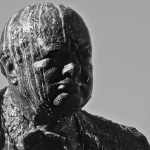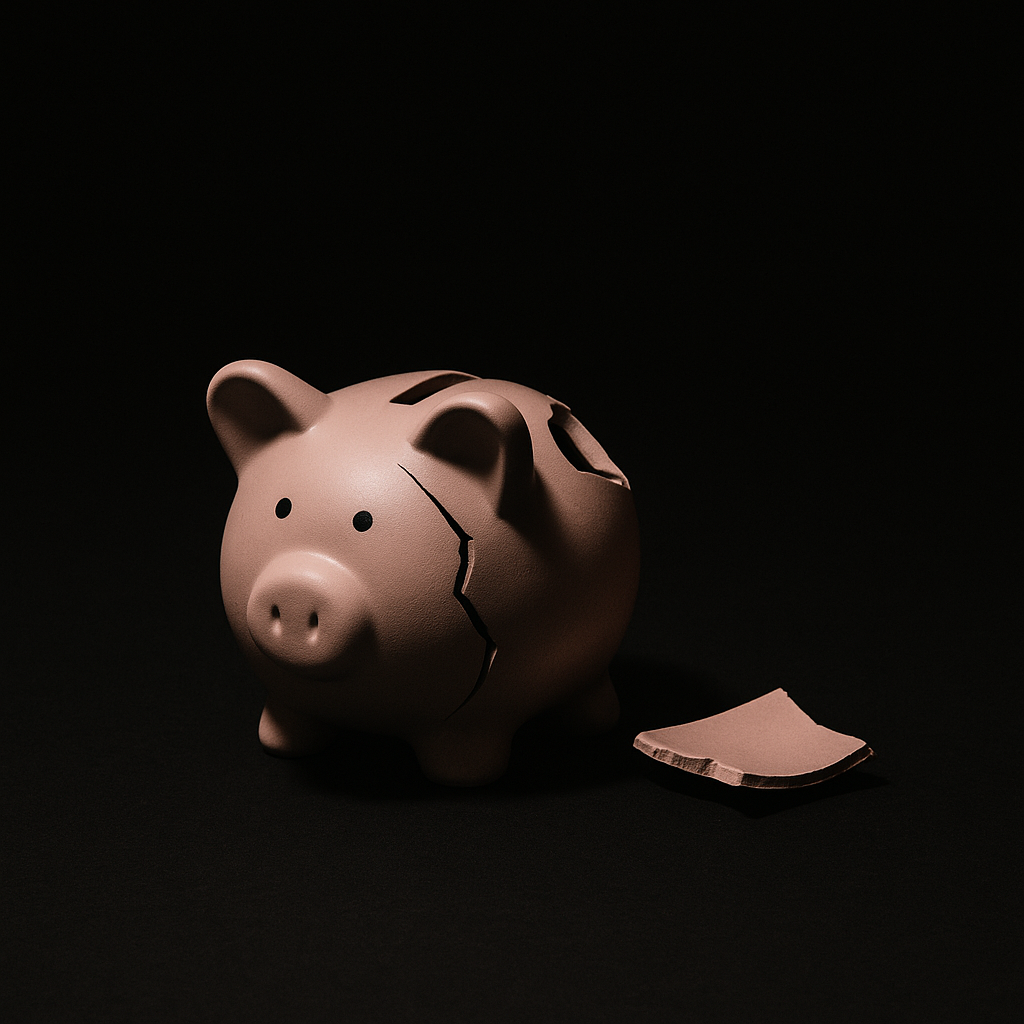Why do we need our heroes to be flawless?
Every country has a patron saint. It could be argued that ours smokes cigars, scowls at you from a £5 note, and wins wars in perpetuity on the history channels.
Winston Churchill isn’t just a man anymore, he’s an incantation. Invoke him, and you’re summoning grit, leadership, and something called “Britishness”; a quality that nobody can define, but everyone swears they’d die for.
We built an altar around him because the alternative was admitting that we don’t really know who we are.
When did history become comfort food?
The myth of Churchill has become the ultimate coping mechanism for Britain. It condenses the horror of the 20th century into a single reassuring story: one man stood up to evil, and we were the good guys. The end. But that’s not history, that’s emotional engineering.
The truth is far less cinematic. Churchill’s wartime speeches were indeed magnificent, but so was his timing. Here was a man built for catastrophe. But when that catastrophe ended, we froze him in amber, refusing to allow him to be anything less than divine.
Every time a politician quotes him, it’s not to channel leadership. It’s performative nostalgia.
How much darkness can a halo hide?
Scratch the surface and you’ll find a man who helped millions starve in Bengal while shipping grain to Europe for future allies. When pressed on the famine, he blamed the victims. “Indians breed like rabbits”. This wasn’t just a social faux pas, his entire policy was wrapped in prejudice.
To be clear, Churchill wasn’t just inheriting the racism of the time. He had industrialised it. He called colonised people “barbaric” and “primitive”, saying that “stronger races” had earned their dominance over them. Even his peers thought his views were extreme. The empire wasn’t just a burden that was his cross to bear, it was a theology that he gladly preached.
We talk about “Blitz spirit”, but he believed squarely in “the Imperial right”.
What kind of god needs riots to stay in control?
Before the war cast his bust in marble, Churchill was cutting his teeth putting down miners and rebels. Tonypandy, 1910: he sent troops to “restore order”. London, 1911: he personally supervised a gunfight like a man trying to cosplay Napoleon. Abroad, he supported using poison gas on Kurdish and Irish rebels, calling opposition to this “unreasonable squeamishness”.
There is a straight line between his “order at any cost” doctrine and the colonial playbook that followed: Kenya, Malaya, Iraq. It wasn’t about civilisation, it was about obedience to a “stronger race”.
Why do we confuse strength with cruelty?
Churchill defended the empire long after it had given up defending itself. He admired Mussolini’s “efficiency”, opposed Indian self-determination, and even advocated for eugenics policies. But Britain loves a man who looks decisive while doing damage. We even have the audacity to call it leadership.
His worldview, the view that some lives matter more than others, didn’t die with him. It became a looming spectre that grew quieter and more institutionalised. You can still hear it in our immigration policy, in the way we are nostalgic for our empire, in the idea that equality is still just a “modern experiment”.
What does worship say about the worshipper?
Our devotion to Churchill isn’t really about who he was. It’s about what he lets us avoid. If he is pure, then so are we. If his sins were just “of the time”, then so are ours.
The myth of Churchill is therefore just a myth of moral exceptionalism. The comforting fiction that our past sins were just noble mistakes rather than intentional, deliberate choices. We need Churchill’s memory to remain untarnished because he anchors the story where we are still the heroes. Without that anchor, our entire national ego starts to wobble.
So was he a hero or a villain?
Yes.
He was both, and as a result, we’ve inflated him to be bigger than both.
His contradictions are Britain’s contradictions: eloquent about freedom, but blind to the people we deny it to. Bravery against fascism, but comfortable with the idea of an empire.
We built a god from the parts that made us feel good, and buried the rest in the archives.
But gods built from denial are incredibly fragile things. Every time we invoke his name to create a sense of national pride, we risk proving his most dangerous legacy right. That power is it’s own justification.



